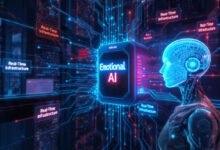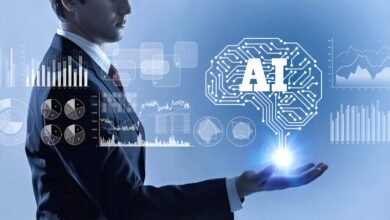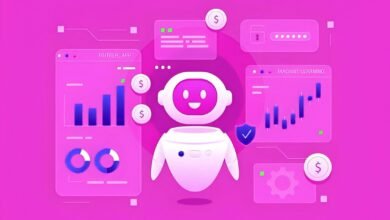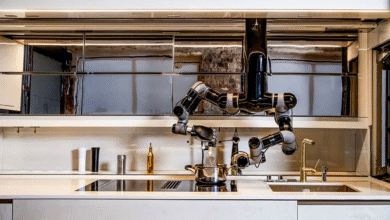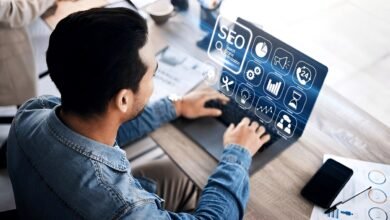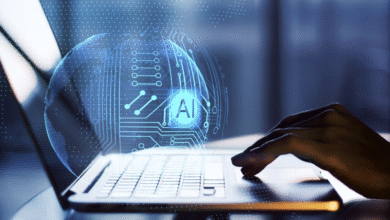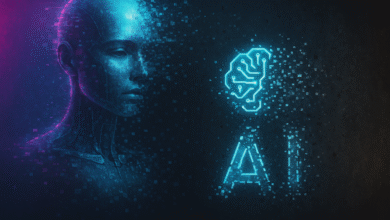10 Ways AI Is Already Changing Your Life in 2025
Here are 10 ways AI is already changing your life in 2025, with each section exploring a specific domain of impact.

In 2025, artificial intelligence (AI) is no longer just a buzzword or a distant promise. It has become deeply embedded in our daily routines, quietly transforming everything from how we communicate to how we stay healthy. Whether you realize it or not, AI is working behind the scenes in your apps, cars, homes, and even in your workplace. Here are 10 ways AI is already changing your life in 2025, with each section exploring a specific domain of impact.
1. AI-Powered Virtual Assistants Are Smarter Than Ever
Virtual assistants like Siri, Google Assistant, and Alexa have evolved dramatically. They’re no longer limited to simple voice commands like setting alarms or checking the weather. In 2025, AI-driven virtual assistants use natural language processing (NLP) and contextual understanding to manage your calendar, suggest optimal schedules, answer complex questions, and even hold nuanced conversations.
They’re deeply integrated across devices and platforms. For instance, if you mention a dinner plan in a text, your assistant might suggest making a reservation or setting a reminder—without any prompt. These assistants can even detect emotional tone, offering support when you’re stressed or sad. The line between assistant and companion is blurring rapidly.
2. Personalized Education Tailored by AI
Education has become more tailored than ever, thanks to adaptive learning systems powered by AI. Platforms used in schools and universities track how students learn, identify weaknesses, and adjust lessons to suit their pace and preferences. AI analyzes test performance, attention span, and even emotional engagement to deliver content more effectively.
In 2025, online learning platforms use AI to provide personalized curricula, simulated labs, and real-time tutoring with virtual instructors. This not only helps struggling students catch up but also challenges advanced learners with deeper material. AI ensures no one is left behind or held back.
3. Healthcare Gets Smarter and More Accessible
AI is revolutionizing healthcare by improving diagnostic accuracy, treatment planning, and patient care. Medical imaging tools now rely on AI to detect abnormalities such as tumors or fractures more precisely than human radiologists in many cases. This leads to earlier diagnosis and better outcomes.
AI also powers predictive analytics, helping doctors anticipate health issues before they become serious. Wearable devices monitor heart rates, oxygen levels, and sleep patterns, feeding real-time data into AI systems that can alert users and physicians to potential problems. In rural and underserved areas, AI-driven telehealth services are filling gaps in medical access, making healthcare more equitable.
4. Smarter Homes That Learn and Adapt
Smart homes have evolved into responsive environments that understand and anticipate residents’ needs. AI systems now manage lighting, climate, security, and appliances with precision, adjusting automatically based on behavior patterns.
For example, your home might lower the thermostat before bedtime or start your coffee when you wake up. AI-enhanced security systems recognize faces, detect unusual activity, and even communicate with emergency services when needed. In 2025, homes are not just connected—they’re intuitive, learning from you every day.
5. AI in Transportation and Autonomous Vehicles
Transportation has seen significant changes thanks to AI-powered systems in both personal vehicles and public transit. Autonomous vehicles (AVs) are now more prevalent, especially in urban areas. These self-driving cars use AI to navigate traffic, detect obstacles, and make split-second decisions that improve safety and efficiency.
AI also enhances traffic management in cities, using real-time data to optimize signal timing, reduce congestion, and lower emissions. Rideshare platforms use AI to predict demand and improve route efficiency, cutting wait times and fuel consumption. Whether you’re a passenger or a driver, AI is reshaping how you move.
6. Financial Services Transformed by AI
AI has transformed banking and financial services, making them faster, smarter, and more secure. From fraud detection to algorithmic trading, AI is the backbone of modern finance. AI systems analyze transaction patterns in real-time to detect suspicious activity and prevent financial crimes before they happen.
In personal finance, apps use machine learning algorithms to help users track spending, manage debt, and build savings. AI-powered chatbots provide 24/7 customer support, while robo-advisors manage investment portfolios based on your financial goals and risk tolerance. The result is a more accessible, personalized financial landscape.
7. Enhanced Entertainment and Content Creation
The way we consume and create content has been radically altered by AI. Streaming platforms like Netflix and Spotify use AI to recommend movies, shows, and music tailored to individual preferences. These recommendations are more accurate than ever, thanks to advanced algorithms that learn from your habits and feedback.
On the creative side, AI tools assist writers, musicians, and designers by generating ideas, editing content, or even composing original music and art. AI-driven video editing and content curation are accelerating production in media and marketing. In 2025, creativity and technology go hand-in-hand.
8. AI-Driven Recruitment and Human Resources
In the job market, AI has transformed recruitment and HR management. AI systems analyze resumes, screen candidates, and even conduct initial interviews using natural language understanding and sentiment analysis. This speeds up hiring and reduces unconscious bias by focusing on skills and experience over subjective criteria.
Internally, AI tools help HR departments monitor employee engagement, suggest training modules, and predict burnout or attrition risks. Smart dashboards offer real-time insights into team dynamics and productivity. The result is a more efficient, data-driven approach to workforce management.
9. Retail Experiences Powered by AI
Retail and e-commerce are using AI to create seamless, hyper-personalized shopping experiences. AI analyzes browsing behavior, purchase history, and social media activity to deliver targeted product recommendations and promotions. This level of customization increases customer satisfaction and loyalty.
In physical stores, AI-powered systems track foot traffic and adjust displays in real-time. Smart mirrors let you try on clothes virtually, while autonomous checkout systems eliminate lines. AI also manages inventory, pricing strategies, and supply chain logistics with minimal human oversight. Shopping has never been this efficient—or intuitive.
10. Climate and Environmental Monitoring
AI plays a critical role in monitoring and combating climate change. Advanced algorithms process satellite data, weather patterns, and sensor inputs to forecast natural disasters, monitor deforestation, and track ocean pollution. These insights allow for faster response to environmental threats and more informed policy-making.
Agriculture benefits from AI through precision farming, which uses drones, sensors, and data analytics to optimize planting, irrigation, and harvesting. This reduces waste and improves yield. In 2025, AI isn’t just changing individual lives—it’s helping preserve the planet for future generations.
The Future Is Already Here
From the moment you wake up to the time you go to bed, AI is shaping your experiences—often without you even noticing. It’s not just about convenience or novelty; AI is driving meaningful improvements in health, education, sustainability, and human connection. As the technology continues to evolve, its presence in our lives will only deepen.
But with these advancements come new responsibilities: ethical use, data privacy, and equitable access must remain central in the AI conversation. For AI to truly fulfill its potential, we need to ensure it serves humanity as a whole.
Conclusion
AI is no longer a futuristic concept—it’s already transforming life in 2025 across every sector imaginable. From personalized education to smarter transportation and greener cities, the ways in which AI is influencing our world are vast and growing. By understanding and embracing these changes, we can not only adapt to this new reality but also help shape it for the better.
As AI continues to integrate into our lives, it’s clear that we’re only scratching the surface of what’s possible. The question isn’t whether AI will change your life—it already has. The real question is: how will you harness its power to improve yours?

